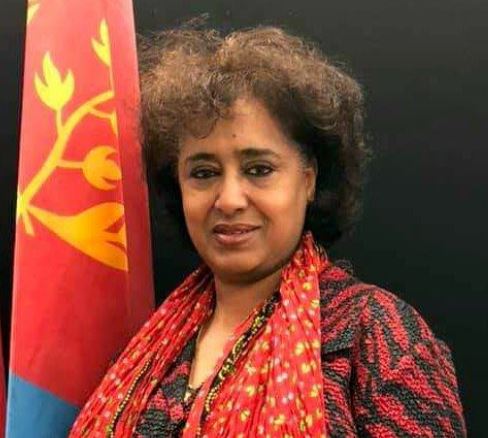October 12, 2019
STATEMENT BY H.E. MS. SOPHIA TESFAMARIAM, PERMANENT REPRESENTATIVE OF ERITREA TO THE UN

Mr. Chairman,
Let me seize this opportunity to congratulate you and the other members of the Bureau on your elections. My delegation wishes to assure you of its full support for a successful session of the Committee.
I would also like to commend the leadership of Under-Secretary Vladimir Voronkov and his team for the excellent work in coordinating UN counter-terrorism related activities since the creation of the Office of Counter-Terrorism.
Allow me to highlight, in a broad brush manner, Eritrea’s perspectives and experiences on this crucial subject.
As you will all agree with me, the scourge of terrorism and extremism has global dimensions and tentacles; is transnational in intent and scope; and continues to grow and proliferate in spite of all the concerted efforts to uproot and eradicate it. In the event, it is important to ponder and assess profoundly, at this juncture, on the tools and methods that have been employed to date to combat this abomination, and, more importantly, to diagnose and fully address the underlying causes that may have contributed to its incubation.
On the first parameter, the absolute urgency of creating robust regional and global mechanisms of coordination; the establishment and consolidation of suitable coalitions that encompass all stakeholder countries is critical. These are broadly speaking, flexible architectures of defense cooperation that can be created to combat specific threats. This means that they will be of limited in geographic and temporal terms. But above and beyond these specific coalitions, the scope of continuous exchange of information, coordination and experiences must be enlarged in terms of participant countries and frequency of interactions.
Eritrea fully subscribes to these policy precepts and approaches. In the new congenial climate of regional cooperation, Eritrea is already pursuing these objectives with added vigor and urgency. Both in bilateral and trilateral Summits that Eritrea has held with its neighbors in the Horn of Africa in the past year, these issues were broached fully with the aim of refining mechanisms for effective cooperation and coordination.
In addressing underlying causes, Eritrea’s two-pronged approach have revolved around the following. First and foremost, Eritrea believes in pursuance of judicious policies of inclusiveness and social justice that do not alienate specific segments of society on the basis of religious creed or ethnic identity. This is crucial especially in multi-cultural and multi-ethnic societies such as Eritrea.
Secondly, pursuance of purposeful and persistent sensitization programs aimed at potentially susceptible age groups and segments of society in order to counter imported radicalization. In specific terms, the approach includes secularization of education, nurturing of mutual tolerance and co-existence between different faiths, youth programs that counter religious radicalization… etc. within the setting of a fully secular State.
As part of its overall commitment to promote peace and security and to combat terrorism, Eritrea continues to take measures in improving its legislative and law enforcement capacities to prevent and prosecute acts of terrorism in all their manifestations. It has issued a proclamation on “Anti-Money Laundering and Combating Financing of Terrorism” as well as established a Financial Intelligence Unit to monitor and criminalize financing of terrorism. Last month, Eritrea became an observer member of the Eastern and Southern Anti-Money Laundering Group.
At the operational level, all relevant enforcement bodies are collectively working with the highest vigilance to fight and suppress any threat of terrorism. Primarily, public awareness-raising programs, including at schools, are regularly conducted by the relevant authorities. Eritrea has recently signed a Partnership Framework with UNODC to strengthen the human, infrastructural, technical and technological capacities of the Eritrean law enforcement agencies to combat transnational organized crime, including terrorism. This project aims to enhance the capacities of Eritrea’s justice and law enforcement bodies in detection, prevention, and combating terrorist activities, as well as their capacities for international cooperation.
In this regard, there is a need to scale up the activities of the United Nations in the area of strengthening the capacity of member states to combat terrorism and their obligations under the global, continental and national levels, through the provision of operational and technical support.
In conclusion, Mr. Chair, Eritrea wishes to stress the need to create a narrative of hope as opposed to the narrative of extremism and terrorism. Root causes of terrorism and radicalization such as poverty, social marginalization, and lack of access to resources and sense of injustice must be addressed. We must promote sustainable and inclusive development to effectively combat international terrorism. The challenges of terrorism and extremism cannot be underrated and the need for wide-ranging consultation, both at regional and international levels, remains too palpable to merit further emphasis.
I thank you.



